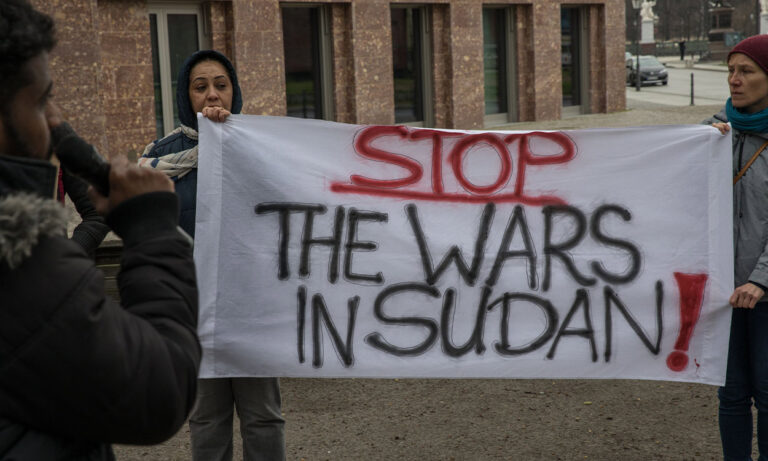What is happening in Sudan? Everything there is to know about the military conflict, explained simply

On 15 April 2023, violence and chaos broke out in Khartoum, the capital city of Sudan. What began as a fierce battle between the Sudanese army and the paramilitary Rapid Support Forces (RSF) has now transformed into a national crisis which has resulted in approximately 100 civilian casualties. It’s also likely that the figure is much higher.
The ongoing conflict is not only politically complex, but is also the result of rising tensions which date back over a decade. To try and better understand the situation, we’ve broken the state of affairs down into a few major categories which should bring some clarity to the events unfolding.
Who is currently in power in Sudan?
In October 2021, the Sudan military dissolved the country’s power-sharing government and effectively took full control. Led by senior general Abdel Fattah al-Burhan, the coup was strongly condemned by international leaders.
Since then, Sudan has been led by al-Burhan and his second-in-command, leader of the RSF, Gen Mohamed Hamdan Dagalo. According to the BBC, the RSF is a paramilitary group which, after forming in 2013, has gone on to amass great power in the country, has intervened in conflicts in Yemen and Libya, and has also developed economic interests in Sudan, including controlling some of the country’s gold mines.
The RSF has also been accused of multiple human rights violations, including the massacre of more than 120 protesters in June 2019.
One of the reasons why there have been mounting tensions in Sudan is due to the fact that the 2021 military coup disrupted the nation’s civilian attempts at democratic rule. The country had been governed for almost 30 years by President Omar al-Bashir—a man who’s been accused of organising war crimes, genocide and crimes against humanity, as reported by the BBC.
When the Sudanese people successfully ousted al-Bashir in 2019 and established a joint military-civilian government, it was believed that the country would finally be able to work towards a future of peace and democracy. However, that all changed when the military took full control in 2021.
Why did violence break out in Sudan on 15 April?
While al-Burhan and Dagalo have previously presented a united front, conflicted interests have now arisen. According to Al Jazeera, the army has demanded that the RSF fully integrate into the nation’s official military—something that would inevitably result in the paramilitary group losing power.
Moreover, further tensions have arisen between al-Burhan and Dagalo as the two remain at odds over who should be the civilian head of state. As with all tyrannical leaders, it’s unsurprising that these power-hungry dynamics have led to serious internal chaos.
While both parties previously made clear their intentions to keep the country running until an elected government could be put in place, it seems as though it’s now become a brutal race to the top, with both al-Burhan and Dagalo set on securing the prime position.
While it’s not known exactly which side initiated the violence on Saturday, it’s clear that things have escalated to extreme levels. Heavy fighting has continued now for three days and civilians are getting caught in the crossfire.
How could this conflict impact the international stability of Sudan?
As emphasised by The Guardian, Sudan is situated in a volatile region. Several of the country’s neighbours, including Ethiopia, Chad and South Sudan, have been affected by political upheavals and conflict of their own, and Sudan’s relationship with Ethiopia, in particular, has been strained over issues including disputed farmland along their border.
It’s unclear when or how the fighting will be resolved. Currently, there are still ongoing air strikes, heavy gunfire and explosions occurring in Sudan. And while the majority of the violence has been concentrated in the capital, the conflict has since spread across the entirety of the nation and is showing no signs of slowing down or ceasing.





